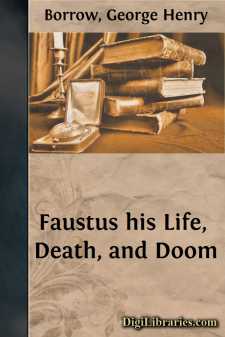Categories
- Antiques & Collectibles 13
- Architecture 36
- Art 48
- Bibles 22
- Biography & Autobiography 813
- Body, Mind & Spirit 142
- Business & Economics 28
- Children's Books 15
- Children's Fiction 12
- Computers 4
- Cooking 94
- Crafts & Hobbies 4
- Drama 346
- Education 46
- Family & Relationships 57
- Fiction 11828
- Games 19
- Gardening 17
- Health & Fitness 34
- History 1377
- House & Home 1
- Humor 147
- Juvenile Fiction 1873
- Juvenile Nonfiction 202
- Language Arts & Disciplines 88
- Law 16
- Literary Collections 686
- Literary Criticism 179
- Mathematics 13
- Medical 41
- Music 40
- Nature 179
- Non-Classifiable 1768
- Performing Arts 7
- Periodicals 1453
- Philosophy 64
- Photography 2
- Poetry 896
- Political Science 203
- Psychology 42
- Reference 154
- Religion 513
- Science 126
- Self-Help 84
- Social Science 81
- Sports & Recreation 34
- Study Aids 3
- Technology & Engineering 59
- Transportation 23
- Travel 463
- True Crime 29
The Story of Yvashka with the Bear's Ear
Description:
Excerpt
INTRODUCTION
The tale of Yvashka; or, Jack with the Bear’s Ear, is a great favourite in Russia. Its main interest depends not so much on him of the Bear’s Ear, or even his comrade, Moustacho, who angles for trout with his moustaches, as on Baba Yaga. This personage is the grand mythological demon of the Russians, and frequently makes her appearance in their popular tales, but perhaps in none plays so remarkable a part as in the story of Yvashka. A little information with respect to her will perhaps not be unacceptable to the reader before entering upon the story. She is said to be a huge female who goes driving about the steppes in a mortar, which she forces onward by pounding lustily with a pestle, though of course, being in a mortar, she cannot wield the pestle without hurting herself. As she hurries along she draws with her tongue, which is at least three yards long, a mark upon the dust, and with it seizes every living thing coming within her reach, which she swallows for the gratification of her ever-raging appetite. She has several young and handsome daughters whom she keeps in a deep well beneath her izbushka or cabin, which has neither door nor window, and stands upon the wildest part of the steppe upon crow’s feet and is continually turning round. Whenever Baba Yaga meets a person she is in the habit of screaming out:—
“Oho, Oho!
I ne’er saw Russian wight till now;
But now the flesh of a Russian wight
I smell with nose and see with sight.”
Such is the Russian tradition about Baba Yaga, who is unlike in every respect any of the goblins and mythological monsters of Western Europe, except perhaps in her cry, which puts one in mind of the exclamation of the giant in the English nursery tale of Jack the Giant killer:—
“Fee, Fi, Fo, Fum,
I smell the blood of an Englishman.”
In the demon lore of the Turks, however, there is a ghostly being with which she seems to have considerable affinity. This goblin is called Kara Conjulos. Kara Conjulos is a female, and lives at the bottom of a well in a certain part of Constantinople, from which she emerges every night and drives about the city in a cart drawn by two buffaloes. She is much in the habit of stopping at caravansaries, going into the stables and breeding a confusion and a panic amongst the horses. She has several daughters, who occasionally accompany her in her expeditions and assist her in the commission of her pranks. A certain learned effendi, in a most curious Turkish book which he wrote about Constantinople, has a great deal to say concerning this goblin and her daughters, and amongst other things gives an account of a very bad night which he passed in a caravansary at some little distance from the city owing to the intrusion of Kara Conjulos and her bevy.
Now for the story of Yvashka, or Jack.
George Borrow.
In a certain kingdom, in a certain government, there lived a peasant whose wife bore him a son who had the ear of a bear, on which account he was called Yvashka, or Jack with the Bear’s Ear.
Now when Jack with the Bear’s Ear was beginning to attain his full growth he used to walk in the street and endeavour to play with the children; and the child whom he seized by the hand, off he was sure to tear his hand, and whom he seized by the head, off he would tear his head. The other peasants, not being able to put up with such outrages, told Jack’s father that he must either cause his son to mend his manners or not permit him to go out into the street to play with the children. The father for a long time struggled to reform Jack, but perceiving that his son did not improve he resolved to turn him out of doors, and said to him: “Depart from me and go wheresoever you please. I will keep you no longer in my house, for I am much afraid lest some misfortune should happen to me on your account.”
So Jack with the Bear’s Ear, having taken leave of his father and mother, departed on his way. He journeyed for a long time until he arrived at a forest, where he beheld a man cutting oaken billets. He went up to him and said, “Good fellow, what may be your name?”
“Quercillo,” replied the other, whereupon they became sworn brothers and proceeded farther. Arriving at a rocky mountain they perceived a man hewing the rock, to whom they said, “God help you, honest lad; and what may your name be?”
“My name is Montano,” replied he....












